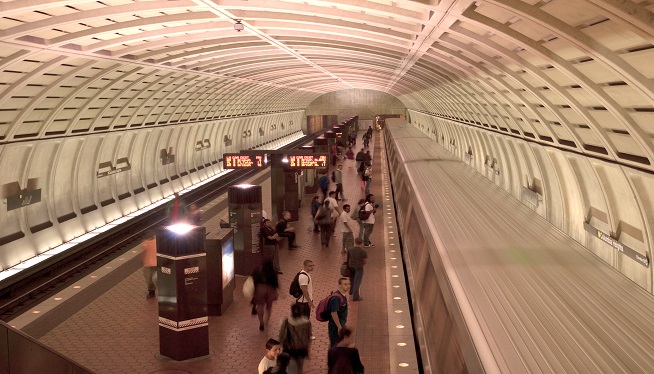Steve Burns
WMAL.com
WASHINGTON – (WMAL) It may be surprising for Metro riders to hear, but a new report set to be released today indicates the WMATA system sees the second-fewest number of collisions, derailments, and fires per one billion passenger trips among the six biggest transit agencies in the U.S. The report is set to be detailed during today’s meeting of WMATA’s Board of Directors.
“It’s good that they’re doing this benchmarking and comparison,” said Emil Frankel, Senior Fellow at the Eno Center for Transportation. “I think that’s an important element, another sign of the quality of management and leadership that (General Manager) Paul Wiedefeld is bringing.”
Between January 2013 and August 2015, New York saw 31 collision, derailment, or fire events per one billion passenger trips. Metro’s analysis shows it’s not far behind with 32 events. Chicago leads the pack with 69 events. Metro came out in the middle of the pack on measurements of security incidents, injuries, and death on the rail system.
The report became less favorable when it turned to finances. It concluded that WMATA spends about 30% more than its peers on average on maintaining the rail system on a per mile basis. They also spend less of their capital budget as a percentage on the rail system than any other major transit system.
Frankel said the report still clearly outlines work that needs to be done by WMATA on safety and finances, but the comparisons aren’t worth anything if there aren’t clearly-set targets.
“You need to have goals. What are you trying to achieve?” he said. “And then figure out how you’re doing against those goals. Ultimately, the Governors and the Mayor have to establish goals, and then make sure they’ve got a management system in place and a set of operations that can achieve those goals.”
The report also showed an ominous sign for Metro. While its peers across the country have largely seen a steady increase in ridership since 2005, the amount of people riding Metro has dropped about 14%.
The intense D.C. media environment may be contributing to an exaggeration of Metro’s problems, Frankel said. “That’s kind of the way people view government and public agencies right now, just something to beat up on, if you will.”
The “heavy hand” of the federal government, Frankel said, also contributes to the perception of a never-ending stream of problems.
“It’s certainly not comparable to any other major metropolitan region in the country.”
Copyright 2016 by WMAL.com. All Rights Reserved. (Photo: WMATA.com)






















